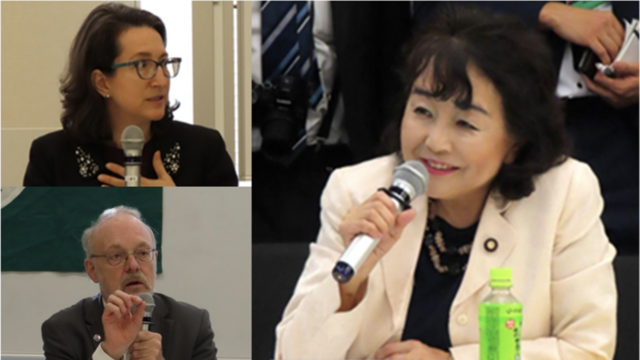
Liberal Democratic Party Kuniko INOGUCHI, Member of the House of Councillors, former Minister of State
You pointed out the importance of solution-oriented multilateralism, but I would like to ask how knowledge-based multilateralism can be achieved. Multilateralism is sometimes power- and politically driven. How can state behavior be changed? This is where a lot of behavioral science research is needed. Philosophy, principles and knowledge are also needed to break down multilateralism. The specialized institutions mentioned have worked based on philosophy and knowledge in specific fields and have provided new concepts. This enables states to find policy objectives that are consistent with their values. However, we believe that multilateralism in the 21st century needs to be rebuilt as a robust knowledge-based force. This is where the UN University and other institutions should come to the fore and provide knowledge, while specialized agencies within the UN should also work with academia and universities to put more effort into knowledge production. By doing so, multilateralism can provide better solutions. This is not simply based on an evidence base but on philosophy and principles. We would like to ask how academic values and inquiry can influence multilateralism to provide better solutions. (19/6/2024)
Lise HOWARD, President, ACUNS
First, knowledge is power. There is no difference between the two; they are one and the same. We used to live in a world where power begets justice. Our goal is to live in a world where justice begets power. In other words, the source of power is thinking the right way and finding the right way. (19/6/2024)
Franz BAUMANN, President-Elect, ACUNS
I would like to add that the United Nations is a knowledge mechanism. For example, in climate change, which I am primarily involved in, the UN Environment Programme in Nairobi produces an annual gap report showing the difference between countries’ commitments and actual efforts to combat climate change. The UN has the ability to find and predict data that others may not think of. National academies of science worldwide have a unanimous view of the dangers of climate change, but this is coordinated through the UN. Thus, the value of the UN lies in producing an undisputed factual record.
These efforts should not be taken lightly. The United Nations should not be neglected because it is clear that any attempt to establish the UN today would not be feasible. The U.S. ratified the UN Charter in 1982, but do you think the U.S. today would ratify such a charter? We need to let this institution flourish because it was created after the crisis, and a similar one will never be created again. (19/6/2024)







